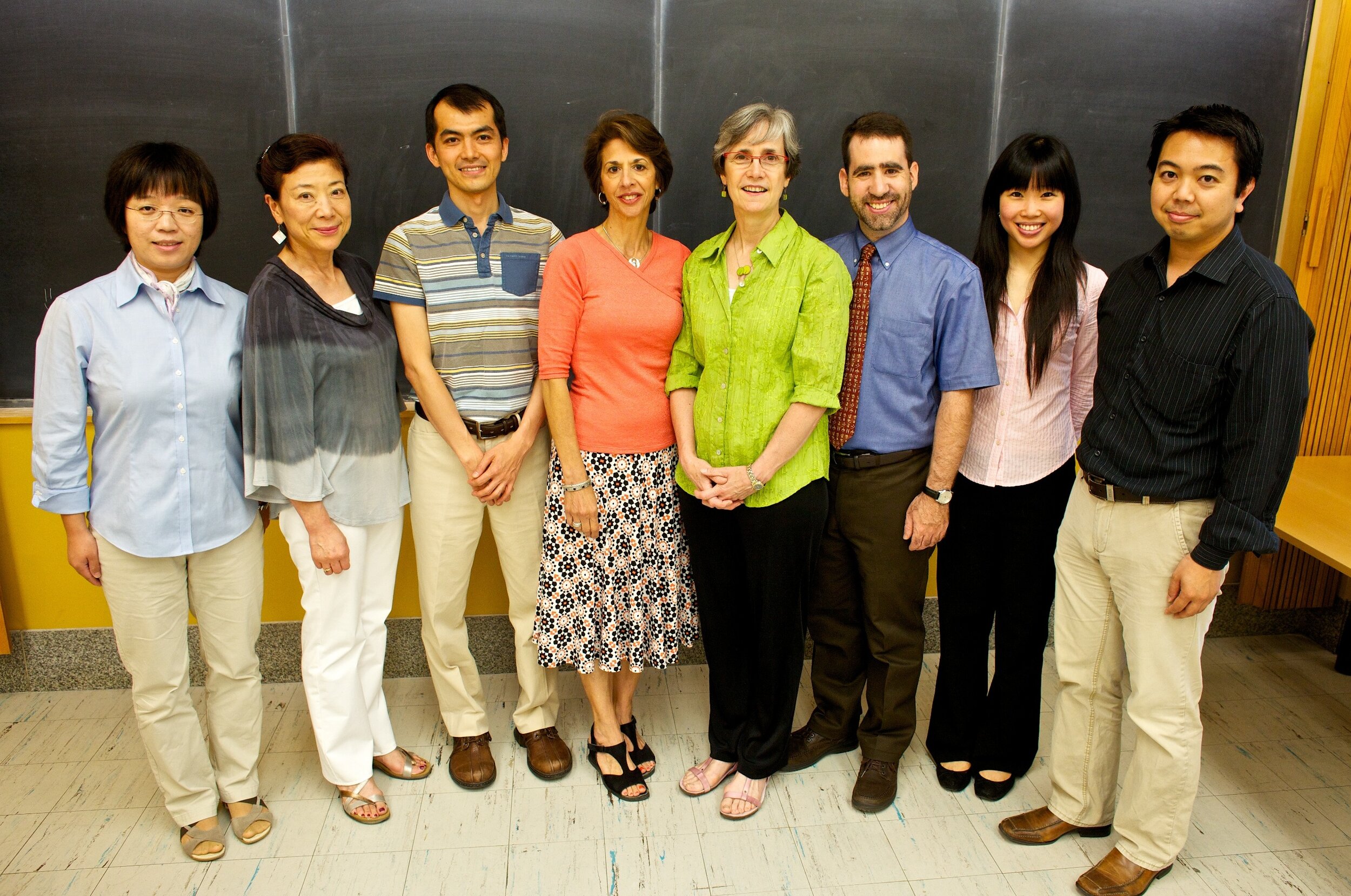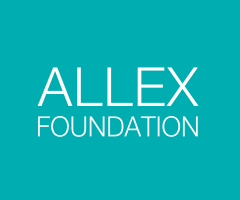
Invite a Teacher to your Institution
We are currently accepting proposals from partner universities to invite ALLEX instructors for the fall semester. Please contact us for application paperwork.
Overview
The ALLEX Foundation enables universities to establish or enhance a Chinese, Japanese, or Korean language program by providing professionally trained instructors who teach in exchange for tuition, room and board waivers. ALLEX instructors are native-speaking Chinese, Japanese, and Korean language instructors trained in the United States by preeminent scholars of Asian language pedagogy to establish and maintain Asian language programs at U.S. universities.
Over 1,500 instructors have been placed since 1988; more than 200 are still teaching in the field, some having attained professorships and lectureships at the nation’s most elite institutions, including Harvard University, M.I.T., Cornell University, Wellesley College, Yale University, and Hamilton College.
Teaching Associate Program (TAP)
The Teaching Associate Program (TAP) provides universities with a professionally trained native Chinese, Japanese, or Korean instructor who would teach one or two language courses for a period of two years. Instructors do not receive a salary; instead instructors teach in exchange for room and board (often a room in the “language house”) and a tuition waiver to pursue a master’s, associate’s, or second bachelor’s degree at your institution. High schools may also participate by partnering with neighboring colleges and universities that can provide for an instructor’s pursuit of a degree while teaching at the high school.
Teaching Fellow Program (FP)
In some cases, institutions unable to commit to the full two-year plan may request a lecturer with a one-year commitment through the Teaching Fellow Program (FP) to augment and enrich course offerings or to supply sabbatical replacements. Instructors in the one year plan teach in exchange for permission to audit one or two classes and for room and board. Many instructors stay in the “language house” and serve as head of programming. Note: Fellow candidates are extremely limited. Most universities should use the above-mentioned Teaching Associate Program instead.
A Proven Model
The ALLEX program has run successfully at more than 230 colleges for more than 30 years. Many of our partner institutions, such as the University of Southern Indiana and Texas Tech University, have been with us for more than thirty years.
Establish an Asian Language Program
The Teaching Associate Program in Chinese, Japanese, and Korean enables post-secondary institutions to begin or maintain a high quality East Asian language program by providing them with professionally trained, native Chinese, Japanese, and Korean instructors who teach in exchange for tuition waivers to pursue a master’s, second bachelor’s, or associate’s degree. (Instructors do not receive a salary.)
ALLEX instructors teach one or two courses of elementary Chinese, Japanese, or Korean emphasizing all four language skills—speaking, listening, reading and writing. Dozens of universities have established successful Asian language programs with the help of ALLEX and its predecessor, Exchange:Japan; scores of universities have since deepened their commitment by adding tenure-track positions (a few have even added two). Universities establishing a new Asian language program will find that ALLEX instructors–in contrast to adjuncts–make a significant difference in the program’s long-term success.
The reasons are clear: 1) ALLEX lecturers are always on campus, 2) they are fully committed to the host institution because of the tuition-exchange agreement, and 3) they are professionally trained to teach native English speakers.
Institutions with established programs unable to commit to the two-year Teaching Associate Program may request a lecturer with a one-year commitment through the Teaching Fellow Program, designed to augment and enrich course offerings or to supply sabbatical replacements. Teaching Fellow instructors teach in exchange for room and board and the tuition to take one or two courses for credit or as auditors. Note: Fellow candidates are extremely limited. Most universities should use the above-mentioned Teaching Associate Program instead.
The Chinese, Japanese, and Korean instructors, all college graduates, are carefully screened through a rigorous application process that includes standardized testing, review of academic record, and an oral interview. Once accepted into the program, ALLEX matches Teaching Associates with institutions based on mutual needs and suitability.
Kaidi Chen, taught at Allegheny College with ALLEX and then entered a Ph.D. program in linguistics.
Enhance an Already Established Asian Language Program
The ALLEX Foundation offers institutions with an already established Asian language program an economical way to:
Add a course or a section
Hire a section instructor
Substitute a faculty member on leave
Staff a language house
Recruit an internationally competitive graduate student and professionally trained “teaching assistant” for your Master’s program
Otherwise expand or enhance your program with a native speaker
Universities may invite an experienced instructor to campus through one of two programs:
1. TEACHING ASSOCIATE PROGRAM (TAP)
The Teaching Associate program (TAP) provides institutions with a professionally trained instructor for a period of two years. Institutions with a long-term commitment to their language program should use the two-year TAP program over the one-year Fellow Program (below) program because the longer employment period offers more stability and consistent pedagogy over several academic years. Institutions do not pay the instructor a salary. Instead the ALLEX instructor teaches one to two courses of Chinese, Japanese, or Korean in exchange for tuition, room, and board waivers to pursue a Masters or second Bachelors degree
2. TEACHING FELLOW PROGRAM (FP)
The Teaching Fellow Program (FP) brings a professionally trained native-speaking instructor to campus to teach Chinese, Japanese, or Korean for a period of one-year. No salary is paid to the instructor; instead they work in exchange for permission to take one or two classes per semester for their own study. Universities should also provide a dormitory room and board. The Fellow Program was designed with sabbatical replacements in mind, although it is also used by some schools to add course offerings within an ongoing language program. Note: Fellow candidates are extremely limited. Most universities should use the above-mentioned Teaching Associate Program instead.
Summer Teacher Training Program
As preparation for their teaching assignments, instructors enroll in a specially designed summer teacher training program taught by master university instructors and experts in East Asian language pedagogy. The summer program emphasizes the teaching of Chinese, Japanese, and Korean specifically to native-English speakers, an important perspective rarely studied by language teachers trained in Asia where most language students are from nearby Asian countries and have very different language backgrounds from students in the American university classroom.
The curriculum of the full-time-intensive summer program includes a lecture component (covering such topics as the basic principles of effective Chinese, Japanese, and Korean language pedagogy, classroom teaching techniques, the linguistic analysis of Chinese, Japanese and Korean, and language testing); an observation component (during which participants observe and analyze actual Chinese, Japanese and Korean language classes taught by master instructors); and a demonstration component (during which participants teach actual Chinese, Japanese, and Korean class sessions, which are videotaped and later critiqued by program faculty members). Details of the summer Teacher Training Institute can be found here.
Professionally Trained by Experts in Asian Language Pedagogy
Host Institution Responsibilities
Institutions provide an instructor with financial support for one or two years. For the two-year Teaching Associate Program this usually takes the form of a tuition waiver (tuition, room and board, and health insurance). The one-year Teaching Fellow Program institutions provide room and board and the ability to take one or two courses. (Note: Fellow candidates are extremely limited. Most universities should use the Teaching Associate Program instead) For the duration of an instructor’s assignment professional support is available from designated members of the summer Teacher Training Institute faculty. We understand that each university has its unique needs and concerns, and ALLEX is committed to cooperating with schools to allow for institutional differences within the framework of our program guidelines.
Application Process
To request an instructor, contact ALLEX to obtain the most up-to-date Letter of Understanding form. Complete the LOU by providing details about the administrative and financial arrangements proposed by your institution, and send the draft to your ALLEX representative. After consultation with ALLEX, submit the final version. Institutions may request more than one instructor by submitting a separate LOU for each requested instructor.
What Universities Are Saying
“We strongly recommend ALLEX to all departments who are trying to build programs in Japanese or Chinese.”
— UNIVERSITY OF WISCONSIN-EAU CLAIRE
“The president, vice-president, and I are taking Chinese 101, and we are so very impressed with Pan Laoshi. I would love to come visit your summer training program and see what magic you work in those few short weeks.”
— WESLEYAN COLLEGE
“... the other big feature [of the program] is the intensive training the teachers get, which you don’t find with other similar programs. They bring methods and an interest in being a good teacher that really shows up in the classroom. Our students have loved all of the Chinese teachers that have come from ALLEX. And our Chinese faculty has also been very happy with their performance in the classroom.”
— HOBART AND WILLIAM SMITH COLLEGES
“Because of the excellent first year instruction the ALLEX fellows have helped us to provide, our enrollments continued to grow, convincing our administration to give us two new full time positions in Japanese language since we first applied to you.”
— BOSTON UNIVERSITY
“...Mizuho is working out exceptionally well. Her student evaluations are outstanding...across the board above average in all categories.... It is particularly rewarding to see what students say about her... ALLEX has been so helpful in our efforts to build capacity in Japanese affordably and always with quality instruction.”
— WESTERN KENTUCKY UNIVERSITY
“You guys do such a great job of recruiting—thanks again for what seems to be another talented, dedicated, and utterly pleasant ALLEX Fellow.”
— UNIVERSITY OF MAINE-FARMINGTON



